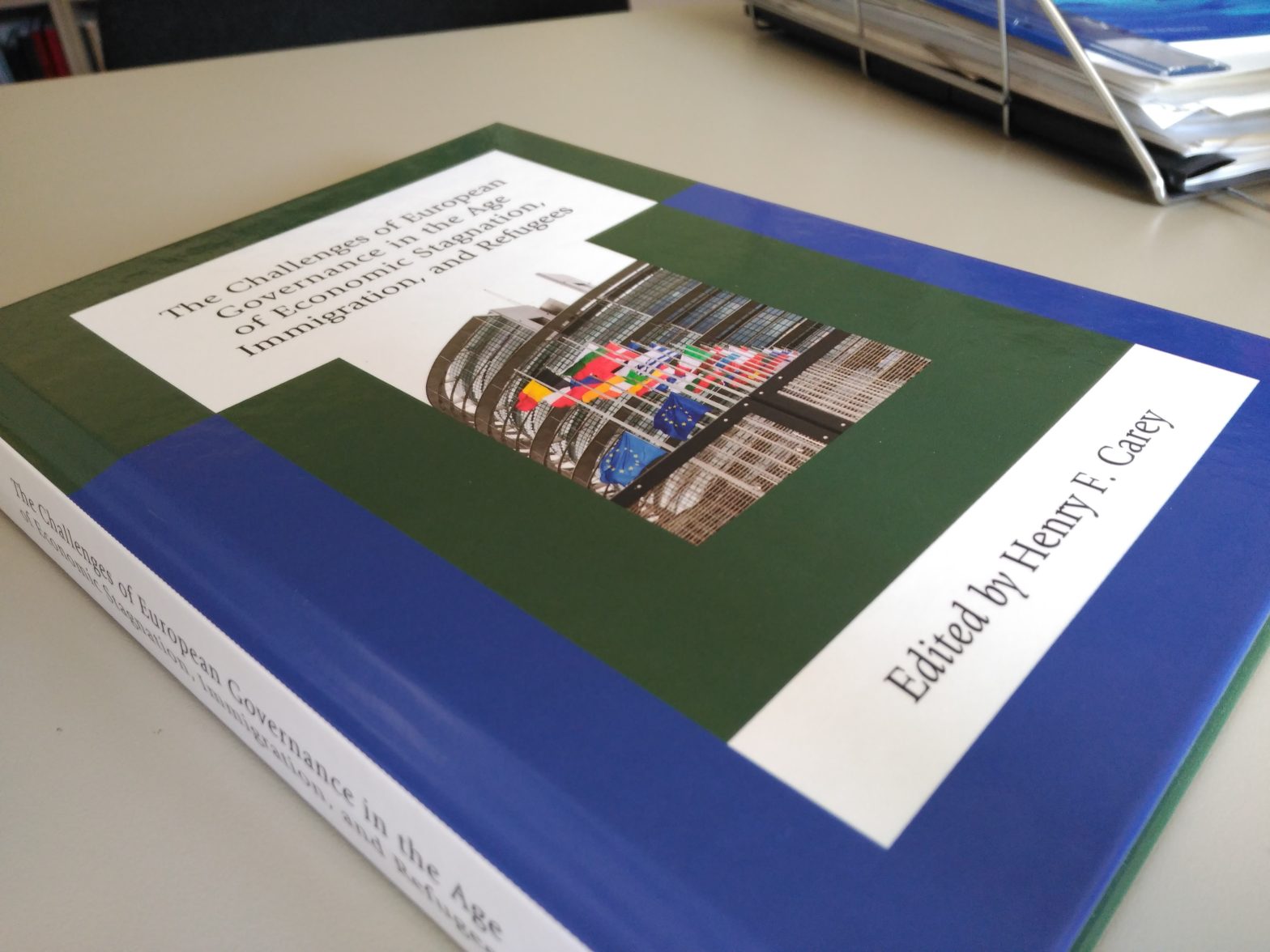The EU-NormCon researchers Esther Barbé, Benjamin Kienzle and Martijn Vlaskamp have participated in a new book edited by Henry F. Carey and titled The challenges of European Governance in the age of Economic Stagnation, Immigration and Refugees (Lexington Books 2017).
The authors contribute with the chapter “An ever weaker Union? The European Union in Global Governance Institutions”, where they question why a stronger single voice does not necessarily turn the EU into a more effective actor in global institutions. They argue that under certain conditions a stronger EU “single voice” does not lead to more ability to exert influence. They identify three processes that may explain the phenomenon: the EU’s efforts to establish a “single voice” may by themselves diminish its efficiency and flexibility in global institutions; the EU “single voice” is perceived by other actors as neo-colonial voice; and negative changes in the international structure shrink EU’s “single voice” influence. The authors use three case studies in their analysis: the roles of the EU in the UN Human Rights Council, the Kimberley Process to ban the trade of conflict diamonds, and the processes to ban cluster munitions.
.

